Latest Stories
Latest News
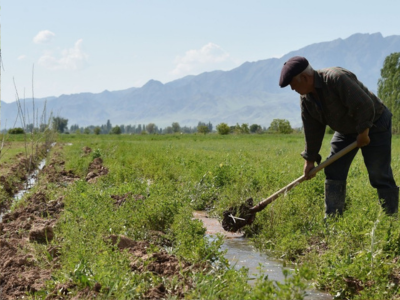
Every drop counts: FAO support for the implementation of an electronic irrigation water monitoring system in Kyrgyzstan
13/05/2024
Kyrgyzstan’s economy is heavily dependent on agriculture, the productivity of which largely depends on water availability. Much of that water is meltwater from the mountains, where climate change is having a serious negative effect on the environment. Glaciers are melting and snowfall is becoming inadequate to replenish the shortfall in the volume of water available to agriculture. Water has become an important issue for Kyrgyzstan and its farming communities. Due to water scarcity, the Food and Agriculture Organization of the United Nations (FAO), the Government of Kyrgyzstan and scientists from the Irrigation Institute have joined forces to address the issue of field water accounting.
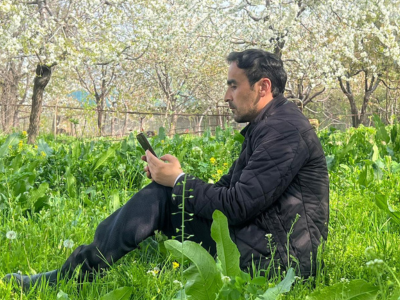
A human booster for digital innovation in Tajikistan
13/05/2024
Khudoidod Rasulov’s vocation as a teacher and his interest in information technology from an early age make him a uniquely valuable figure in his village of Lolazor some 30 kilometers east of Tajikistan’s capital, Dushanbe. He’s the go-to person whenever fellow villagers need information to help better cultivate their orchards and market their produce online. So it’s not surprising that he’s played a key role as the Food and Agriculture Organization of the United Nations (FAO) has implemented its Digital Villages Initiative in Lolazor.

Accelerating sustainable climate-smart agribusiness in Serbia and Uzbekistan
10/05/2024
A stakeholders’ meeting in Rome marked a pivotal step towards greater private sector engagement for climate-smart agrifood systems. It was held as part of a joint project of the Food and Agriculture Organization (FAO) and European Bank of Reconstruction and Development (EBRD) to decarbonize selected agrifood value chains and make them more resilient to climate change.
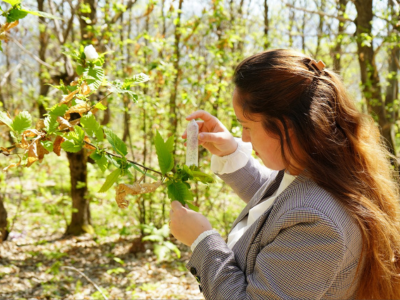
FAO initiative transforms Albanian chestnut value chain through innovation
10/05/2024
In the picturesque landscape of northern Albania's Tropoja region, nestled within the expansive chestnut forest massif, an ambitious initiative is taking shape. The chestnut sector is now the focus of the One Country One Priority Product (OCOP) programme of the Food and Agriculture Organization of the United Nations (FAO). The programme is a global FAO initiative that helps countries identify and then leverage the potential of special agricultural products to facilitate improved access to stable markets and acting as a key entry point for reaching their defined priorities. Special Agricultural Products are those which are unique to their agroecological production systems or of importance to national or cultural heritage.
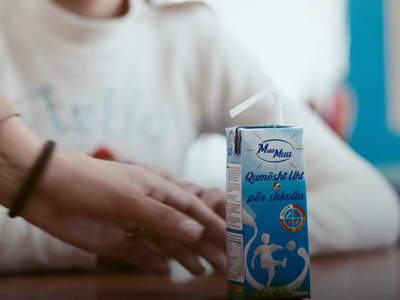
Private sector engages with FAO on improving food security and agriculture sector sustainability
08/05/2024
Private sector organizations from Europe and Central Asia are preparing to make a collective statement to the upcoming Thirty-fourth Session of the Regional Conference for Europe and Central Asia (ERC34) of the Food and Agriculture Organization of the United Nations (FAO), which will be hosted by the Republic of Moldova at FAO headquarters in Rome, 14 to 17 May.
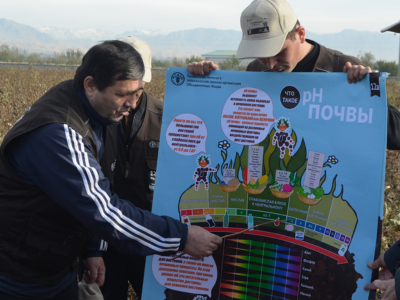
Hands that heal our soils
29/04/2024
To address these issues at their roots, the Global Soil Doctors Programme, implemented by the Food and Agriculture Organization of the United Nations (FAO), is creating a legion of “soil doctors”, educated and trained to support farmers on sustainable soil management. This programme, a key initiative of the Global Soil Partnership, provides heaps of educational resources to support the doctors and farmers to teach and learn from each other.

Women and youth will benefit from new project on inclusive rural development and sustainable agriculture in Georgia
26/04/2024
On 25 April, Otar Shamugia, the Minister of Environmental Protection and Agriculture of Georgia and Raimund Jehle, Representative of the Food and Agriculture Organization of the United Nations (FAO) in Georgia signed a project agreement for EUR 4 million, financed by the Austrian Development Cooperation (ADC) on “Inclusive Rural Development and Sustainable Agriculture.” The goal of the project is to foster increased competitiveness within the agricultural sector, improve the effectiveness of policies related to gender responsive and social inclusivity, enhance food production, and concurrently alleviate rural poverty, with a specific emphasis on mitigating inequalities faced by women and youth.

Better land policy and management on the horizon for Montenegro
18/04/2024
Agricultural land is where food production starts; if managed well, it can boost rural economies. This is especially true for countries that are scarce of arable land. With this in mind, Montenegro has turned to the Food and Agriculture Organization of the United Nations (FAO) for support. A new project now in full swing is helping the country in formulating its new land policy, improving the management of state land, and piloting land consolidation.
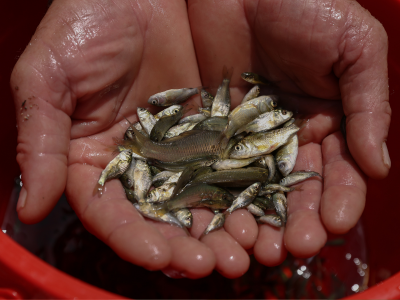
Thriving, efficient small-scale aquaculture starts with a reliable fish seed supply
15/04/2024
In aquaculture, seed encompasses the different life stages of the young species – from egg to juveniles. Therefore, improving fish farmers’ access to quality seed is key to the growth of successful small-scale aquaculture, especially in developing countries. The ways and means to meet this need was the main theme of the discussions at an expert workshop co-organized by the Food and Agriculture Organization of the United Nations (FAO) and the Research Institute for Fisheries and Aquaculture of the Hungarian University of Agriculture and Life Sciences and held in Szarvas, Hungary, 27—28 March 2024.

FAO trains farmers in Kyrgyzstan in modern horticultural techniques
10/04/2024
Horticulture can not only help farmers improve their incomes and livelihoods but also offer nutritious food and healthy diets for citizens in Bishkek and around the world. However, achieving this will require a great deal of innovation.
For this reason, the Food and Agriculture Organization of the United Nations (FAO), together with the Kyrgyzstan Ministry of Water Resources, Agriculture and Processing Industry, launched the project “Introduction and promotion of innovative approaches for adopting best technologies for horticulture” in 2023 that aims to introduce and promote advanced practices and innovative solutions in horticulture in Kyrgyzstan.


